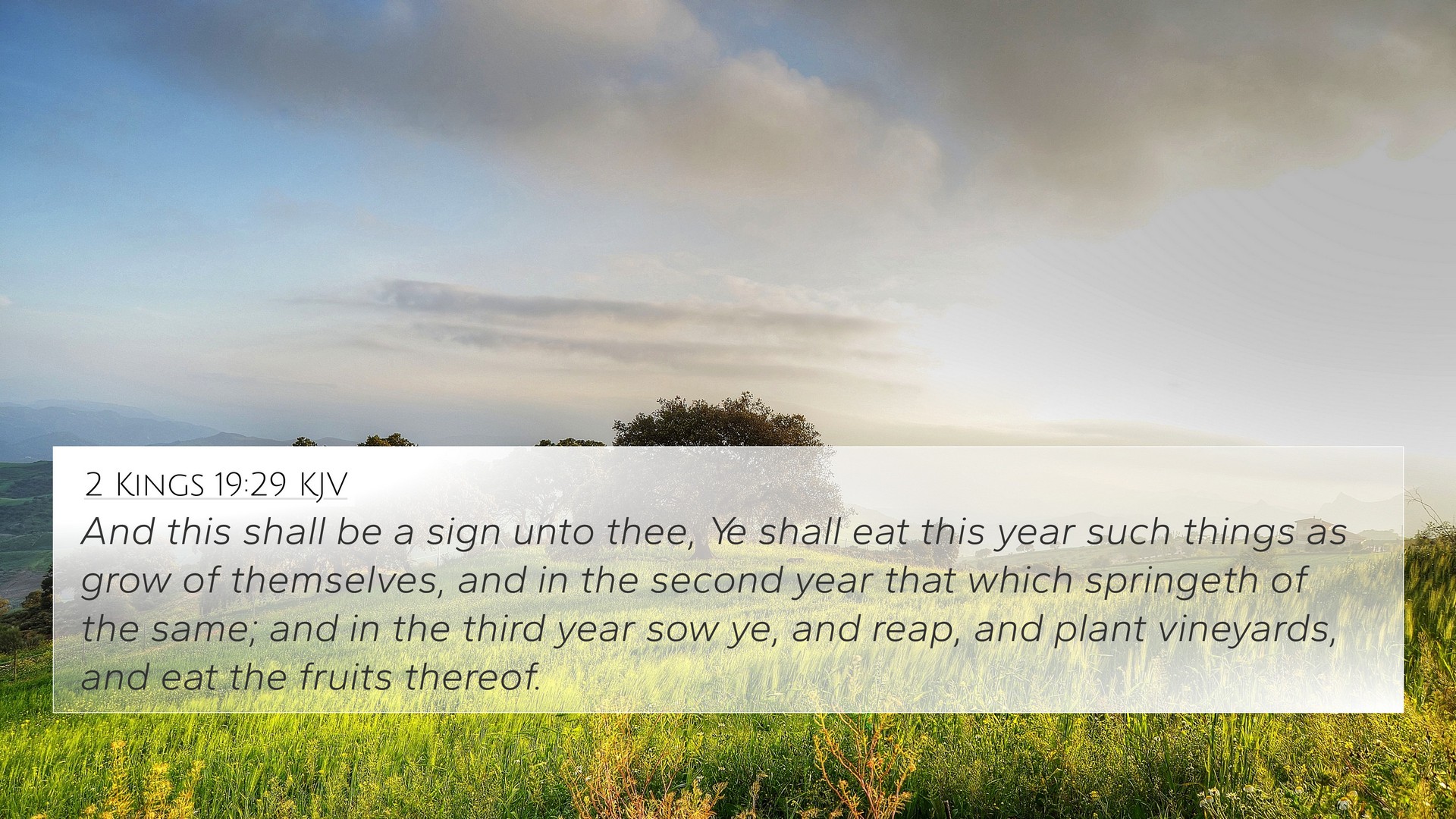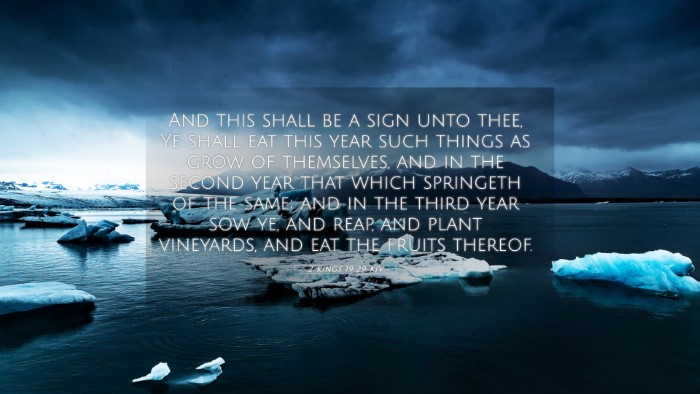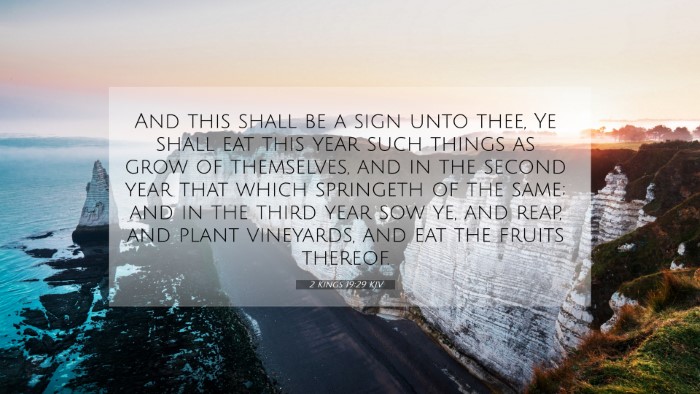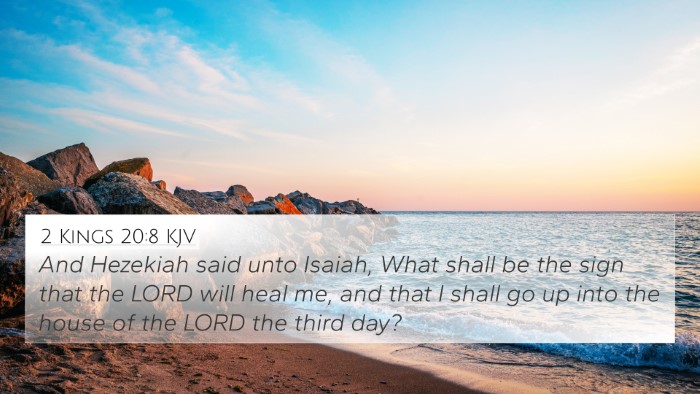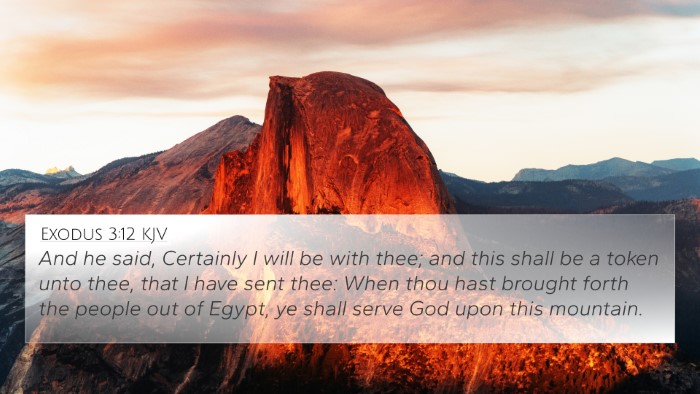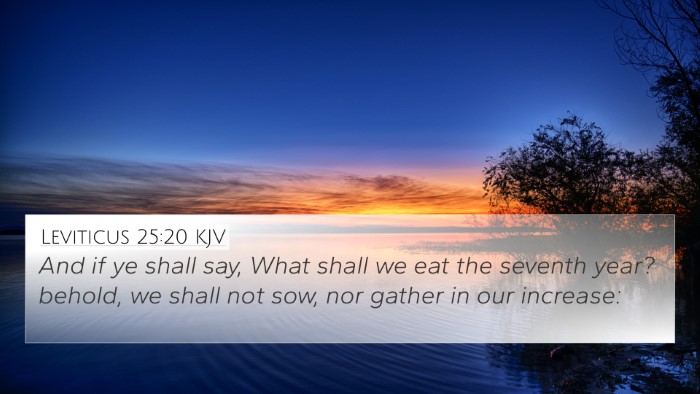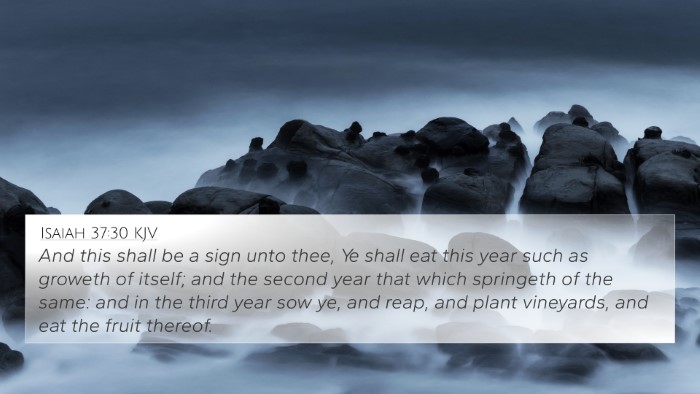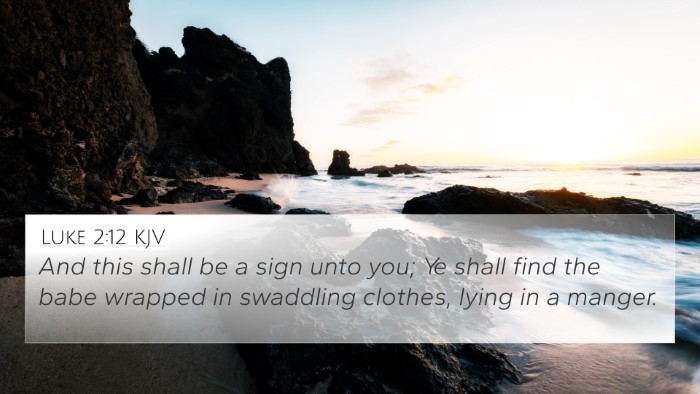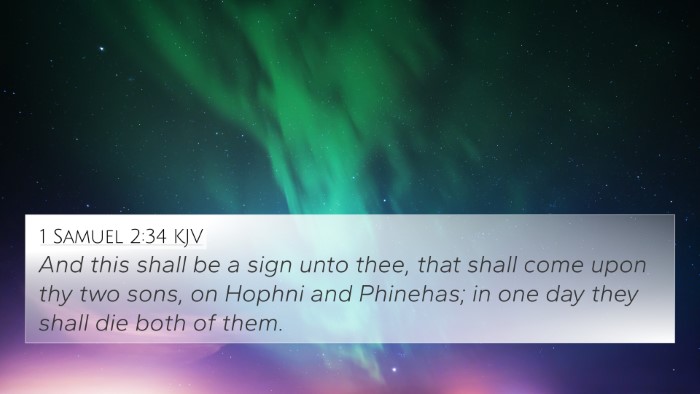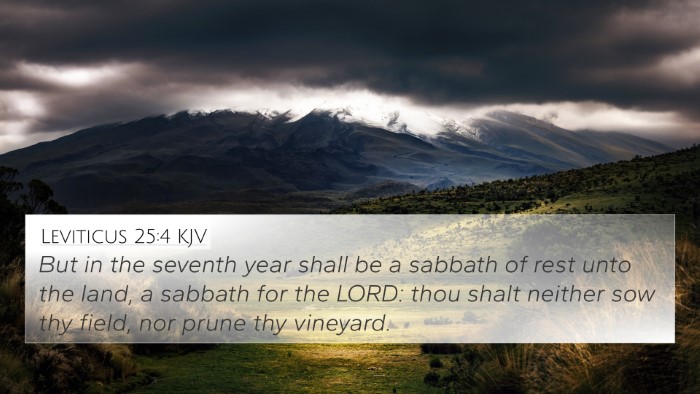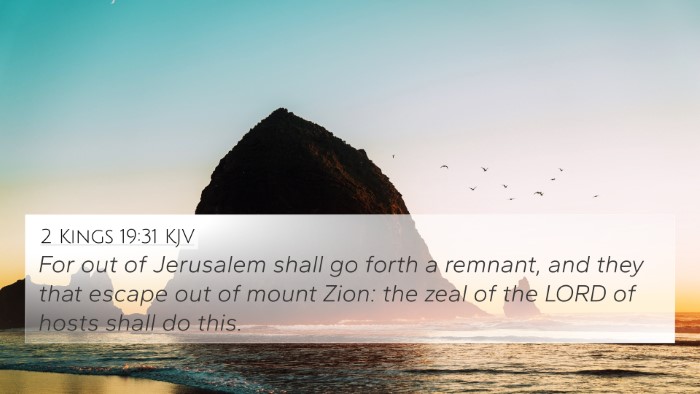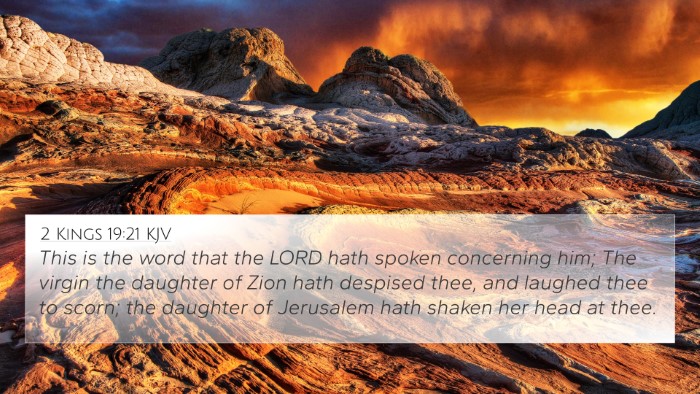Understanding 2 Kings 19:29
2 Kings 19:29 states: "And this shall be a sign unto thee, Ye shall eat this year such things as grow of themselves, and in the second year that which springeth of the same; and in the third year sow ye, and reap, and plant vineyards, and eat the fruits thereof." This verse provides significant insight into God's promise of sustenance during a time of distress and His assurance to the people of Judah amidst the threat of Assyrian invasion.
Summary of Meaning
The verse serves as a divine assurance from God to King Hezekiah and the people of Judah, reflecting God's provision and mercy. Commentaries provide the following insights:
- Matthew Henry: Henry emphasizes God's mercy, stating that although the land had been ravaged, God would provide food from the land itself without the need for planting or sowing in the initial years. It symbolizes hope and God's unfailing provision.
- Albert Barnes: Barnes notes the specific timeline mentioned in this verse, indicating that for the first two years, they would rely on what naturally grows, allowing time for recovery and eventual restoration. It highlights God's control over nature and His plans for His people.
- Adam Clarke: Clarke interprets this promise as a way God encouraged the people to trust in His sovereignty, which would ultimately lead to abundance and prosperous harvests in subsequent years. Clarke also stresses the importance of faith in God's word following a time of despair.
Connections Between Bible Verses
2 Kings 19:29 can be cross-referenced with several other verses to enrich understanding. Here are 10 relevant Bible verses that relate closely:
- Isaiah 37:30: Similar to 2 Kings 19:29, this verse promises a miraculous supply of food in challenging times.
- Genesis 41:30-30: God’s provision during famine, paralleling the theme of divine sustenance and blessings.
- Matthew 6:25-26: Jesus reassures that God provides for all His creation, reinforcing His care for humanity.
- Psalms 37:25: The assurance that the righteous will not go hungry emphasizes God’s protective provision.
- Luke 12:24: This verse echoes the care God has for the birds, demonstrating His attention to every detail of creation.
- Joel 2:24: Promise of abundance after drought, directly relating to the themes of restoration and blessing.
- Proverbs 3:5-6: Trust in God underscores the need for faith in divine provision.
- Philippians 4:19: Paul's assurance that God will provide for every need aligns with God's promises throughout scripture.
- John 6:35: Jesus as the Bread of Life signifies the spiritual nourishment God provides.
- Jeremiah 29:11: Assurance of God's plans for His people that encompass hope and prosperity.
Thematic Bible Verse Connections
This verse contributes to several broader biblical themes:
- God’s Faithfulness: The consistent theme of God's faithful provision throughout scripture.
- Divine Assurance: God's reassurance to His people in times of fear and uncertainty.
- Restoration: The promise of recovery and abundance following judgment or hardship.
- Provision in Despair: God provides for His people even when circumstances seem dire.
Methods for Bible Cross-Referencing
Understanding how to use cross-references can deepen one's study of the Bible. Here are some methods:
- Utilizing a Bible Concordance to locate related verses.
- Engaging in cross-reference Bible studies that highlight thematic links.
- Employing Bible reference resources such as study bibles equipped with cross-references.
- Creating Bible chain references linking passages that share similar themes.
User Intent and Cross-Referencing Questions
When studying 2 Kings 19:29, readers may consider:
- What verses are related to 2 Kings 19:29?
- How do Isaiah 37:30 and 2 Kings 19:29 connect?
- Are there similarities between this verse and Jesus’s teachings in the New Testament?
- What Bible verses support the themes presented in 2 Kings 19:29?
Conclusion
2 Kings 19:29 reminds the faithful of God’s unwavering commitment to provide in times of need. By cross-referencing and linking related scriptures, believers can gain a fuller understanding of this promise, drawing connections between the Old Testament experiences and New Testament teachings on faith and provision.
